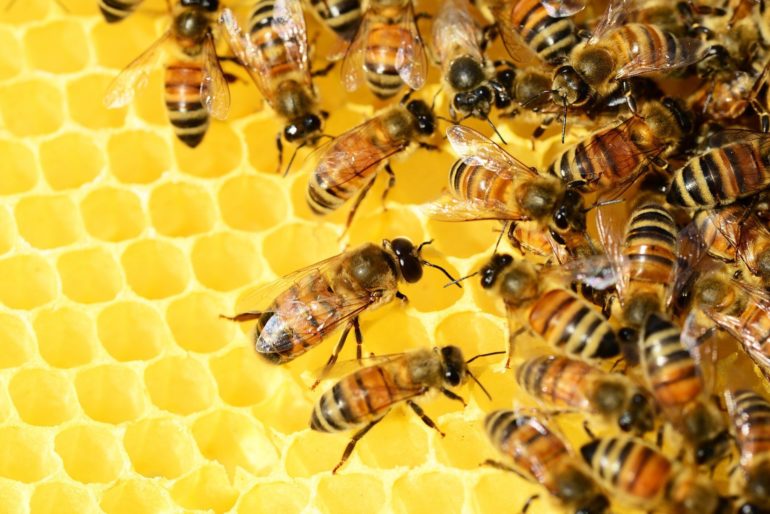A team of researchers from the University of Sydney, the ARC-Plant Protection Research Institute and York University, has found that workers in a species of honeybee found in South Africa reproduce by making near-perfect clones of themselves. In their paper published in Proceedings of the Royal Society B, the group describes their study of the bees and what they learned about them.
Prior research has found that some creatures reproduce through parthenogenesis, in which individuals reproduce without mating. This form of reproduction has the advantage of not wasting time and energy on mating and the gene pool remains undiluted. The downside, of course, is loss of genetic diversity, which helps species survive in changing conditions. Prior research has also shown that for most species, parthenogenesis is a less-than-perfect way to produce offspring. This is because some tiny bit of genetic material is generally mixed wrong—these mistakes, known as recombinations, can lead to birth defects or non-productive eggs. In this new effort, the researchers have found a kind of honeybee that has developed a way to avoid recombinations.
The researchers found that South African Cape honeybee queens reproduce sexually, but the workers reproduce asexually. They then conducted a small experiment—they affixed tape to the reproductive organs of a queen, preventing males from mating with her, and then allowed both her and the worker bees in the same hive to reproduce asexually. They then tested the degree of recombination in both. They found that offspring of the queen had approximately 100 times as much recombination as the worker bees. Even more impressive, the offspring of the worker bees were found to be nearly identical clones of their parent. More testing showed that one line of worker bees in the hive had been cloning themselves for approximately 30 years—a clear sign that workers in the hive were not suffering from birth defects or an inability to produce viable offspring. It also showed that they have evolved a means for preventing recombination when they reproduce. The researchers note that despite their unique abilities, the bees are still in line with evolutionary theory—they are simply doing what works best for their continued existence.
Researchers discover a gene in honey bees that causes virgin birth
More information:
Benjamin P. Oldroyd et al, Adaptive, caste-specific changes to recombination rates in a thelytokous honeybee population, Proceedings of the Royal Society B: Biological Sciences (2021). DOI: 10.1098/rspb.2021.0729
Provided by
Science X Network
2021 Science X Network
Citation:
South African worker honeybees reproduce by making near-perfect clones of themselves (2021, June 11)
retrieved 12 June 2021
from https://phys.org/news/2021-06-south-african-worker-honeybees-near-perfect.html
This document is subject to copyright. Apart from any fair dealing for the purpose of private study or research, no
part may be reproduced without the written permission. The content is provided for information purposes only.



